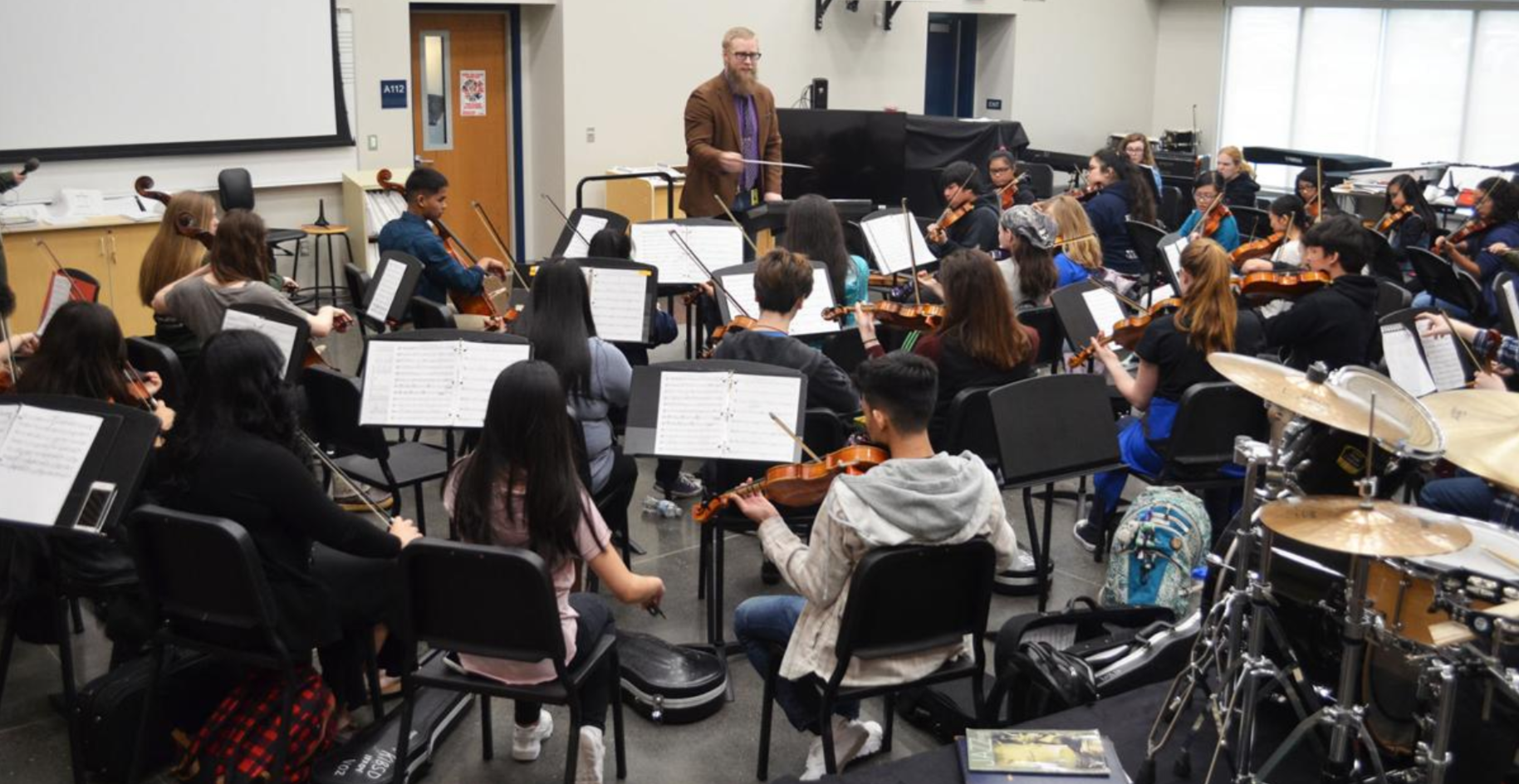Kathryn Kennedy discovers the unique classroom landscape in Kodiak, Alaska
Kathryn Kennedy, a current music education major at CSU, had no idea the unique stories she would encounter when she contacted Walter Muelling in Kodiak, Alaska.
Last year, the obligatory live teacher observations music education students were expected to fulfill were replaced with COVID-friendly virtual interviews, and with that, a world of possibilities. Teachers were carefully selected by multiple criteria, including the population of the city where their school was located, type of ensembles they conduct, and grade levels. Though some students were dedicated to their native Colorado, many decided to venture into faraway classrooms, where sometimes, they would stumble upon some unique landscapes.
“I was just looking for a teacher that was in a rural setting,” Kennedy said. “I found Mr. Muelling's program very randomly online.”
Walter Muelling was the orchestra conductor for the middle and high schools in Kodiak, Alaska, as well as all of the schools in the district. Kodiak is the most populated city on Kodiak Island, which is part of a group of islands referred to as Kodiak Archipelago. In order to teach in all of these remote locations, Muelling teaches virtually.
“His setup for virtual teaching is one of the best I’ve ever seen,” Kennedy said.
Muelling made it a priority to conduct his lessons so that all of the details usually seen in person would be present with the same intricacy online. During lessons, he would switch with ease from a full view of violin and bow, to a camera that focused on his left hand, highlighting fingerings and hand position. And as all musicians know, the key to playing an instrument well can truly lie in minute precision.
Kennedy's main takeaway is that teachers should be advocates for their students, and find ways to show them that they are respected and appreciated.
“During the school year, Mr. Muelling would sneak strings and other supplies to the pilots flying to the islands so that students wouldn't have to pay for materials,” Kennedy said. “He was the only music teacher in his district and always found a way to connect with students, even when they were hard to reach.”
Muelling also went out of his way to have different flags in his classroom to represent students' nationalities and backgrounds.
“He would learn words and jokes in their languages, and he said even if students laughed at his pronunciation, that they really appreciated his effort to connect with them,” Kennedy said. “This made students that struggled with English feel more comfortable trying. He worked with students and community leaders to write and preserve songs in students' native languages since some of these languages are dying and there are only a few people left who speak them.”
Though observations and interviews can be done in person again, the music education area has decided to keep teacher interviews virtual. While watching a teacher working in an actual classroom will always be a priority, and often accomplished during student teaching, opening the interview experience parameters offers broader connections, changing views, and could direct a student's path in an unexpected way.

